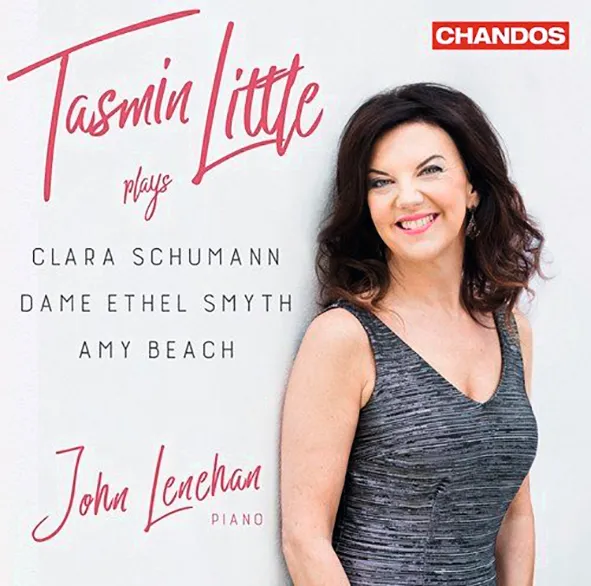
C Schumann Drei Romanzen; Beach Violin Sonata in A minor, Op. 34; Romance; Invocation; Smyth Violin Sonata in A minor, Op. 7 Tasmin Little (violin), John Lenehan (piano) Chandos CHAN 20030 71:27 mins
The assumption that women don’t – or can’t – compose has historically been so pervasive that, regardless of their work’s actual merits, the many who have done so have often been mocked or ignored during their lifetime, and quickly forgotten thereafter. Others still have become figures of largely social curiosity – like Clara Schumann (née Wieck, 1819-96), Ethel Smyth (1858-1944) and Amy Beach (née Cheney, 1867-1944); wonderfully gifted composers of diverse backgrounds and outlook who are far too little heard today. This delightful, beautifully performed album by Tasmin Little and John Lenehan makes an emphatic, seemingly effortless case for their music for violin and piano; presenting all but one of Beach’s works in the genre alongside Smyth and Schumann’s single contributions. As might be expected, there are miniatures here: Clara Schumann’s Drei Romanzen, Op. 22 pack much intensity and subtle melodic contrast into just nine minutes. Beach’s own Romance, Op. 23 – possibly her best-known work – tempers refined sweetness with vivid dramatic turns, while her Invocation, Op. 55 is simply lovely – and artlessly delivered.
But it’s the two, substantial four-movement sonatas that most impress. Smyth’s Sonata Op. 7 was composed around 1887. Formally conventional – albeit the second movement scherzo has no trio – the work is nonetheless full of character and a robust ambiguity, captured in deft harmonic-melodic swerves. Beach’s Sonata, Op. 34 (1896) is similarly passionate, but here with a soaring lyricism supported by weighty chords and countered by skipping meters. The motivic invention is striking, right to the final bar.
Steph Power